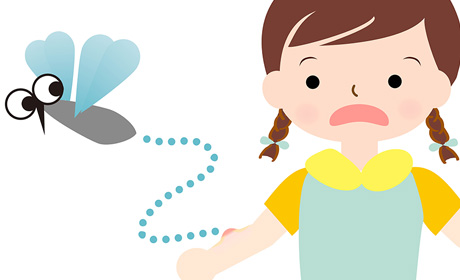With warm weather come mosquitos and ticks and reports of various vector-borne illnesses like West Nile virus, Chikungunya, Dengue, and Lyme disease. You West Coasters are lucky to have fewer of these pests but the rest of us need to keep up with our bug spray trivia in order to best protect ourselves and our children. Here are some basic facts and resources on insect repellents that I hope you will find helpful:
DEET? Or Picaridin? Depends on how long you need it and what pests you are aiming to repel. Both have excellent safety profiles. DEET has been around for 50 years, and the cases of bad outcomes are almost always associated with improper use (ingestion, over-application). DEET products have a longer duration and are more effective against ticks. However, picaridin goes on more easily, does not damage plastics or synthetic clothing, and is equally effective against mosquitos (keep in mind it has shorter duration). The EPA has a fantastic search tool that will help you pick the best option for your needs. For example, if you are looking for a picaridin product that is effective against mosquitos and ticks for a 4 hour period, you will find several options. However, if you decide you want a picaridin product lasting for 12 hours, you may find only 1 option.
There are also other EPA registered products but DEET and picaridin are the most common and most effective when it comes to efficacy and duration.
Citronella and other more natural products. Unfortunately, citronella-based products have a very short duration of efficacy against mosquitos (i.e. less than 20 minutes) and they are not effective against ticks. I do keep the citronella sprays around if they are needed for a short duration, keeping in mind that if you really want to protect against mosquito-borne illnesses, you should pick a DEET or picaridin product. The New England Journal did a comparison study several years ago. At that time, the best natural product was a soybean oil preparation. It lasted for a mean time of an hour and a half. The DEET-based products lasted approximately 90-300 minutes, depending on concentration. Wrist bands… pretty dismal results. At best they lasted a few minutes. So far, there is no good evidence for the electronic devices either.
Oil of Lemon Eucalyptus (chemical name P-menthane-3,8-diol aka PMD) products. These are also very effective in higher concentrations. They have not been tested in small children and thus should not be used in kids under age3. Also avoid contact with eyes and face, especially in children.
Combination Products. It is best to use a separate sunscreen and mosquito repellent. This is mostly because sunscreens need to be pre-applied and frequently reapplied , whereas repellents, especially DEET-based products, should be used when needed and then washed off. For those interested, here is my refresher on sunscreen use.
Ticks. Best to use a DEET product. If you live in a tick-infested area, de-tick yourself and your kids every evening. If the ticks are removed in a timely fashion (generally, less than 36 hours), you have minimized any chance that the tick will transmit disease.
For the hardcore. If you are traveling to the Amazon or live in a heavily tick-infested area, you may want to look into permethrin-treated clothing. Permethrin is an insecticide and repellent. You can purchase clothing that is treated or buy treatments that you can apply to clothing. These treatments can last through several wash cycles.
You may already know these tidbits but just in case… For application to the face, spray repellent onto hands and then dab onto face and ears. Wash your hands and kids’ hands after application of insect repellents to avoid contact with mouth and eyes. Avoid use on cuts or broken skin. Do not use under clothing. Wash off after use. For mosquitos, avoid the dawn and dusk hours outside. Dress in full-coverage clothing. DEET should not be used in kids under 2 months of age.

Leave a Reply